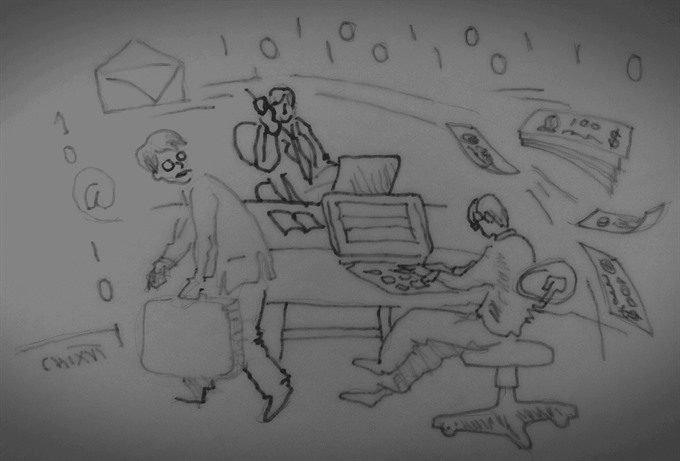 Talk Around Town
Talk Around Town

As more people access the Internet, the number of reported cybercrimes has risen.
 |
By Lan Phuong
You could put eggs in their mouths, I thought, as I told my colleagues what had happened.
It was jaw-dropping stuff, for sure.
Just days earlier, I’d been congratulated and teased about an upcoming dream trip to the United States.
My organisation had received an invitation to a conference there and I was selected.
The conference organisers requested me to wire several hundred dollars via Money Gram to book a hotel, which I did. Then came an email from a US agency, asking for a refundable deposit of thousands of dollars for the “visa legalisation fee.” This did not sound right.
It was not.
A few Google searches later, I broke into a cold sweat as the organiser’s name appeared on a website tracking scams.
Cybercrime is not rare in Việt Nam. This is perhaps understandable when a country which had a little more than 200,000 people accessing the Internet in 2000 has at least 46 million users, 52 per cent of the country’s population, in 2015.
According to Internet Live Stats, Viet Nam is set to rank 13th in the world this year in terms of the number of internet users.
As more people access the Internet, the number of reported cybercrimes has risen. Many of these involve sending fake notices to Internet users, for example, that the user has won a lottery and bank account details are needed to transfer the winnings. Long-distance romantic relationships are another scam to which many naive Vietnamese women have fallen prey.
I did not see myself as naive. I had grown up during the Internet boom, and was very familiar with such scams. I could spot them instantly.
Today, I am a sadder, wiser person.
The professional aura that the scammers put on as they donned various guises, from US State agencies to airlines, had fooled me.
That such conference scams are not on the top of the cybercrime list in Việt Nam was little consolation.
Due to the Government’s strict policy of sending foreign currencies abroad, a majority of Vietnamese know little about global money transfer services like MoneyGram or Western Union.
It was not until I sniffed out the scam and logged on to the MoneyGram website that a prominent warning about scams hit my eyes instantly.
A little more digging showed that both MoneyGram and Western Union were the BFF (Best Friends Forever) of scammers, since there were no paper trails leading to the person receiving the money. It was not a coincidence that MoneyGram stated clearly that any monies received by a stranger/scammer could not be recovered or refunded.
I filed a report with the police as soon as I could, but I am not entertaining any major hope of recovering my money. My lack of confidence does not reflect on the capability or readiness of Vietnamese police to investigate minor cases like mine.
The foreign element in Internet fraud makes it difficult for law enforcement agencies to deal with it. Tackling the fast-growing cybercrime industry will take a lot of time, effort and international collaboration.
The FBI reported in May that since 2013, cybercriminals had managed to swindle nearly $3.1 billion from 22,000 victims in at least 79 countries through business email compromise (BEC). As companies become more dependent on the Internet for business, they are also exposed to increased risk of fraud.
There are no easy ways to tackle cybercrime. You cannot ban people from accessing the Internet and banks and other financial institutions would look askance at direct police intervention into their business.
So where do we stand? Just as children are told not to take candy from strangers, we have to tell ourselves and our loved ones not to wire money to strangers.
Repeat, don’t wire money to strangers.
I know you might have heard this a million times already, but right now, you have it from another proverbial horse’s mouth. – VNS




